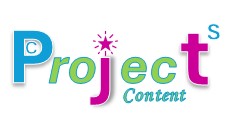Project management is a critical role in any organization, demanding a unique blend of leadership, communication, and organizational skills. Whether you’re a seasoned project manager or an aspiring candidate, preparing for the interview process is vital to showcase your qualifications effectively. To help you excel in your next project manager interview, we’ve compiled a comprehensive list of common questions asked during these assessments, along with insights on how to approach and answer them confidently.
1. General Project Management Skills
1. Can you provide an overview of your project management experience?
– Begin by summarizing your career journey in project management. Highlight key projects, your role, project scope, and the outcomes achieved. Emphasize challenges faced and your approach to overcoming them.
2. What project management methodologies are you familiar with?
– Discuss your knowledge of methodologies such as Agile, Scrum, Waterfall, or Kanban. Provide examples of how you’ve applied these methodologies in previous roles to enhance project delivery and team collaboration.
3. How do you prioritize tasks and manage project timelines?
– Explain your approach to task prioritization aligned with project goals and stakeholder expectations. Mention tools like Gantt charts, project management software, or Agile boards used to track progress and adjust timelines.
2. Leadership and Team Management
1. How do you motivate and inspire your project team?
– Describe your leadership style and strategies for fostering a positive work environment and teamwork. Share examples of successful team motivation techniques you’ve implemented.
2. Describe a challenging project you managed and how you resolved team conflicts.
– Narrate an instance where conflicts arose within your team or with stakeholders. Discuss your conflict resolution approach, emphasizing communication and actions taken to maintain team cohesion.
3. How do you ensure effective communication within your project team and with stakeholders?
– Highlight communication strategies such as regular meetings, status reports, and clear documentation practices. Explain how you tailor communication to different audiences for alignment throughout the project lifecycle.
3. Risk Management and Problem-Solving
1. How do you identify and mitigate project risks?
– Discuss your process for risk assessments, identifying threats, and developing mitigation strategies. Provide examples of risk management plans implemented to minimize disruptions and ensure project success.
2. Describe a project that faced unexpected challenges and how you adapted to ensure delivery.
– Detail an instance where unforeseen obstacles threatened project progress. Explain adaptive strategies, decision-making under pressure, and actions taken to realign resources and regain project momentum.
3. What tools or techniques do you use for tracking and reporting project progress?
– Detail proficiency with project management tools like Jira, Trello, or Microsoft Project. Explain how data analytics or metrics are used for accurate project status updates and risk forecasting.
4. Client and Stakeholder Management
1. How do you manage stakeholder expectations and ensure project deliverables meet requirements?
– Discuss your stakeholder engagement approach, including communication, feedback loops, and managing change requests. Share examples of maintaining positive stakeholder relationships while meeting project objectives.
2. Provide an example of a project where you exceeded client expectations.
– Highlight a project where exceptional results delighted the client. Discuss identifying and meeting evolving client needs, managing scope creep, and ensuring a seamless project transition to delivery.
3. How do you incorporate feedback and lessons learned into future projects?
– Explain feedback solicitation from clients, team members, and stakeholders. Discuss analysis of feedback, identifying areas for improvement, and implementing strategies for continuous project enhancement.
5. Professional Development and Future Goals
1. What are your long-term career goals as a project manager?
– Outline aspirations within project management, such as senior roles, industry specialization, or obtaining certifications like PMP (Project Management Professional). Align goals with organization growth opportunities and industry trends.
2. How do you stay updated with industry trends and best practices in project management?
– Demonstrate commitment to professional development through participation in conferences, workshops, or online courses. Highlight certifications, memberships in professional organizations, or contributions to industry publications.
3. Why do you want to work for our organization?
– Tailor response to align with company values, mission, and industry reputation. Showcase research on organization projects, culture, and career growth potential. Express enthusiasm for contributing skills and experience to drive impact and achieve mutual goals.
Conclusion
Preparing for a project manager interview involves thorough preparation, self-reflection, and effective communication of experiences and skills. Familiarize yourself with these common interview questions and craft thoughtful responses based on unique achievements. By showcasing problem-solving abilities, leadership qualities, and dedication to continuous improvement, position yourself as an invaluable asset to organizations seeking capable project management professionals.





What’s up, its good posat about mediua print, wwe aall be aware off media is a fantastic source of data.
Woԝ that was odd. I just wrоte an very lⲟng commеnt but after I clicked submit my comment didn’t show up.
Grrrr… well I’m not writing all that over again. Regardless, just wanted to say fantastic blog!